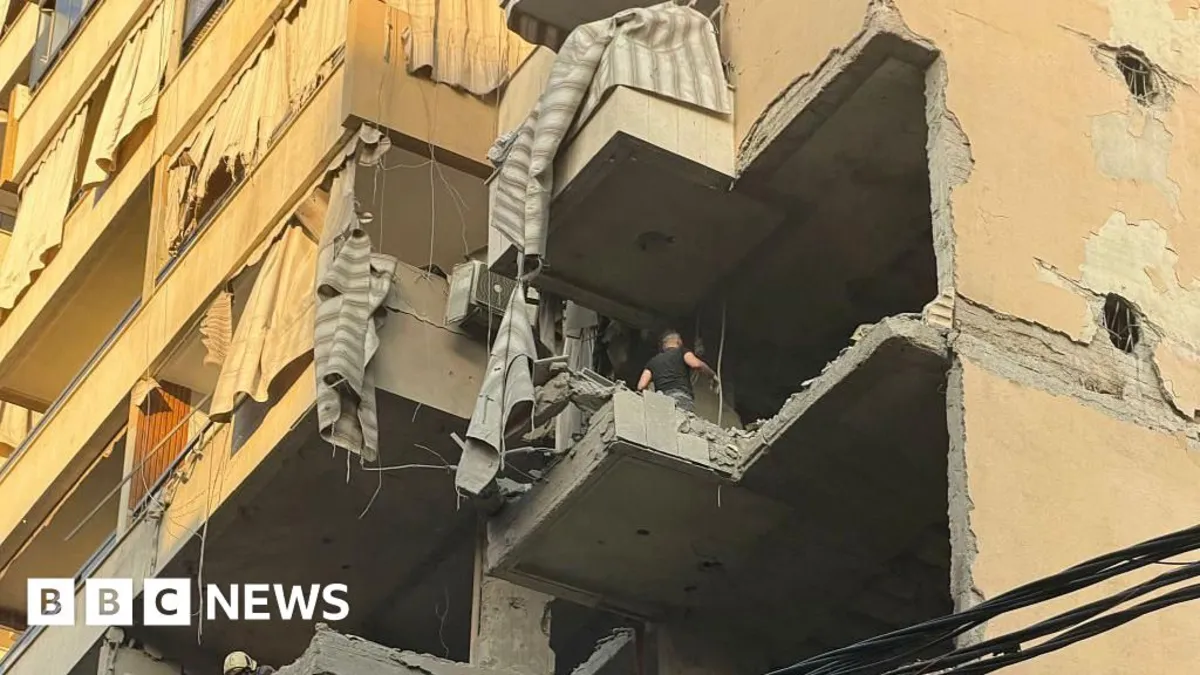
Israel's military has confirmed the targeted killing of a senior member of the militant group Hezbollah in an air strike that occurred in the southern suburbs of the Lebanese capital, Beirut. This strike, which took place despite an existing ceasefire, has raised significant concerns regarding escalated violence in the region. The individual identified as Ali Tabtai, Hezbollah's chief of staff, was described by Israeli officials as a seasoned veteran within the group, having held numerous senior positions over the years.
The air strike resulted in tragic casualties, with Lebanon's health ministry reporting at least five fatalities and 28 injuries. The attack targeted an apartment building located in the densely populated Dahieh district of Beirut. While Hezbollah confirmed that the air strike was aimed at a senior commander, they chose not to disclose the identity of the individual involved. This event marks Israel's first military operation in southern Beirut in several months, indicating a potential shift in their tactical approach towards Hezbollah.
Israel's latest military action comes amidst an escalating campaign targeting individuals and facilities purportedly linked to Hezbollah, a Shia Muslim group that enjoys the backing of Iran. This offensive continues despite a ceasefire that was brokered by the United States and France, which took effect last November. Israeli officials have raised alarms, claiming that Hezbollah is actively attempting to rebuild its military capabilities, smuggling weapons into Lebanon, and increasing the production of explosive drones as alternatives to traditional rockets and missiles. These developments have intensified fears of a further escalation of hostilities.
In response to the air strike and ongoing Israeli operations, Lebanon's President Joseph Aoun has called on the international community to exert pressure on Israel. He emphasized that Israel's actions violate the agreement that ended a prolonged period of conflict, as the nation continues to occupy several locations in southern Lebanon. The Lebanese government has declared its intention to disarm Hezbollah; however, the militant group has firmly rejected discussions regarding its weapons until Israel ceases its attacks, fully withdraws from Lebanon, and releases Lebanese prisoners.
A Western diplomatic official, who spoke under the condition of anonymity, indicated to the BBC that the Lebanese authorities are facing increasing pressure from the Trump administration. This pressure stems from frustrations over what is perceived as sluggish progress in addressing Hezbollah, which is classified as a terrorist organization by the US and UK. The recent conflict between Israel and Hezbollah reignited when the Lebanese group commenced rocket fire at Israeli positions, shortly after the Hamas attacks on October 7, 2023, claiming it was acting in solidarity with the Palestinian people in Gaza.
According to Lebanese authorities, the ongoing Israeli military operations have resulted in approximately 4,000 deaths in Gaza, many of whom are civilians, and have displaced over 1.2 million residents. On the Israeli side, the conflict has also claimed lives, with reports indicating the deaths of more than 80 soldiers and 47 civilians. This escalating violence underscores the urgent need for a resolution to the conflict between Israel and Hezbollah.
The US government has previously imposed sanctions on Ali Tabtai, designating him a terrorist in 2016 and offering a reward of $5 million (£3.8 million) for information leading to his capture. The US government has described Tabtai as a pivotal military leader for Hezbollah, noting his past command of the group’s special forces in Syria and Yemen. His actions in these regions are viewed as part of a broader Hezbollah initiative to provide training, resources, and personnel in support of its destabilizing activities across the region.